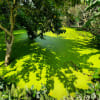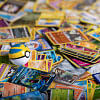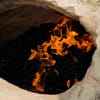The desperate need for a nuanced narrative of history in NCTB textbooks

Milan Kundera, in his novel The Book of Laughter and Forgetting states, "The struggle of man against power is the struggle of memory against forgetting". By this assertion Kundra articulates how humans end up forgetting their past of trauma and torture, eventually creating a path repeating the tragedy of ancient instead of preventing it. Needless to say, remembering one's past is an active form of resistance against oppression. For this reason, governments across the globe end up spending an astronomical amount of wealth to paint a picture of the past that is favourable to them and their idea of nation-building. Bangladeshi state-sponsored National Curriculum and Textbook Board (NCTB), is a perfect example of this practice.
In our country, students have been drawing their history lessons from the NCTB book for Bangladesh and Global Studies, which has been notoriously altered in terms of its history lesson to appease whichever government is in power. To do so it would select specific stories to tell and which to erase. For example, during the Awami League (AL) era, contribution of Sheikh Mujib, (founding father of the country and father of the current chief of the AL, Sheikh Hasina) would be highlighted, whereas in the Bangladesh Nationalist Party (BNP) era, the contribution of Ziaur Rahman (founder of BNP and husband of current chief of the party, Khaleda Zia) would be given spotlight and an hagiography would be narrated instead of an objective history.
To empower the dominant political narrative, the main technique that the NCTB has been employing for decades is to cherry-pick specific parts of history that suits the prevailing regime. For example, although the current version of the NCTB Bangladesh and Global Studies book mentions the incredible leadership of Sheikh Mujib during the bloody liberation war in 1971, it fails to even mention his failure to govern post-independence. His administration was filled with cronyism, important government jobs were offered to people who were close to the founding fathers by family ties.
Furthermore, Mujib had been accused of decorating Kamal as his heir apparent, essentially propelling the culture of dynastic politics in the newly independent country. However, it is not just his nepotism that has been removed from our collective memory, but also his formation of a one-party state, banning all other political parties except his own Bangladesh Krishak Sramik Awami League (BAKSAL), and empowering Jatiya Rakhi Bahini, a para-military force that has been accused of executing extrajudicial killing, has all been erased, creating a sense of impunity for politically powerful people. It can never be denied that the way Mujib had been assassinated along with his entire family including his minor son and pregnant daughter-in-law is tragic and it was heinous in every aspect. However, he was with limitations, as are most people.
Another important aspect of history that our national book is declining to face is the history of partition. The state-sponsored textbook hardly spares a single paragraph on the history of the 1947 partition of the Indian subcontinent, which along with drawing two new countries on the world map has also witnessed the largest human migration in history, packed with communal riots between Muslims and Hindus.
Those communal conflicts have unfortunately left their mark even today. Many Hindus, during the Pakistan era, lost their properties under the "Enemy Property Act", which led to the confiscation of lands that belonged to Hindu communities who migrated to India to save themselves against violence, only to come back and see that their properties had been taken by the Pakistani state. The Hindu community complains that the law has been used against them even after 1971.
The distrust between Muslim and Hindu communities in our country has been shaped by the violence and trauma of partition. Documenting these aspects, Anam Zakaria in her book 1971: A People's History from Bangladesh, Pakistan and India, commented, "[P]artition remains an ongoing process in Bangladesh with communal tensions, crystallisation of religious identities, and an 'otherisation' of Hindus increasingly prevalent." It is not difficult to dissect that our past is connected with our present.
Through discourse and perception, these unknown tales of history continue to haunt us even today. This collective amnesia alarmingly has an immense impact in our lives. With the arrival of the new interim government, we must demand a nuanced narrative in the national textbook.
Bangladeshi people, from their childhoods, must be given access to their past which is not confounded within black and white but rather grey. A person would no longer be a deity or be condemned for their selective work. Historical figures must be presented as human beings with human flaws and they would be appreciated for what they truly were. Bangladeshi youth, filled with hope for a new dawn of democracy, must be given access to their past so that they can build a better future.
Fariha Lamisa is a struggling student who is majoring in English at East West University. Send her your well-meaning suggestions and consolation at [email protected].

 For all latest news, follow The Daily Star's Google News channel.
For all latest news, follow The Daily Star's Google News channel. 









Comments